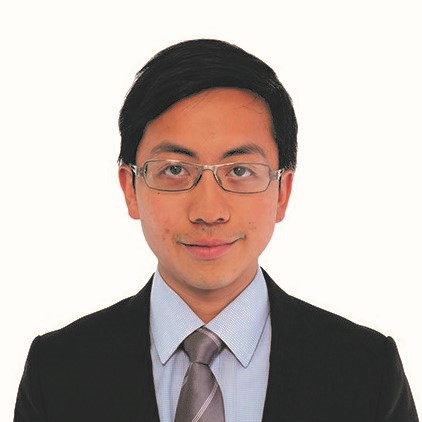The LLM in AI Law aims to provide students with a broad and deep appreciation of the legal issues raised by advances in artificial intelligence (AI). The Programme covers a wide spectrum of issues concerning the ways in which AI’s applications have and will continue to influence future directions in law-making and legal practice. Students will gain insights into AI technology, and also an understanding of how AI will impact both the future of the legal profession and humanity more generally.
All applicants must fulfill the General Admission Requirements and the English Language Proficiency Requirement prescribed by the University’s Graduate School.
In addition applicants must have:
- a qualification to practise law in the jurisdiction of the student’s residence; or
- a Bachelor of Laws (LLB) degree or a degree of equivalent standing; or
- a Bachelor’s degree in a non-law subject with substantial law-related working experience.
As many areas of professional activity are related to law, we welcome applications from applicants who work in the areas of commerce, accountancy, social work, public administration, and similar relevant fields. Applicants whose undergraduate studies were not conducted and assessed in English are required to take an appropriate English language proficiency test and achieve a sufficient score, such as a score of 570 or above in TOEFL (Paper Based Test), 88 or above in TOEFL (Internet-Based Test); Band 6.5 or better in IELTS; or equivalent. The test results must be obtained not more than two years prior to the date of applying to join the LLM Programme.

31 January 2026 (first round)

28 February 2026 (second round)

10 April 2026 (third round)
Programme Information
- Medium of Instruction: English
- Campus: The CUHK Graduate Law Centre, 2/F, Bank of America Tower, Central.
Programme Duration
Full-time mode:
Part-time mode:
two years (normative study period) – three years (maximum study period).
Programme Requirements
24 units: including 12 units of required courses and 12 units of elective courses. Students should pass all the assessments with a cumulative GPA of at least 2.0 in order to be recommended for graduation.
Full-time mode (1 year)
| Year 1 | |
|---|---|
| Term One |
|
| Term Two |
|
Part-time mode (2 years)
| Year 1 | |
|---|---|
| Term One |
|
| Term Two |
|
| Year 2 | |
| Term One |
|
| Term Two |
|
Delivery mode
A 3-unit course will usually have three teaching hours per week.
Classes are held during daytime and evenings of weekdays and daytime on Saturdays.
Classes will incorporate a mix of lectures, seminars, tutorials, presentations and class discussions.
Courses
Required Courses:
- Artificial Intelligence and the Common Law
- The course is aimed at providing students a thorough coverage of the legal issues raised by advances in AI. The course aims to provide a broad spectrum of how applications of AI have and will continue to influence the future direction of law making and law practice. Students will gain insights into AI technology, understand how AI will impact both the future of the legal profession and humanity more generally. Students will also have the opportunity to focus their interest on a particular practice area of law that is affected by AI technology. By the end of this course, students will be able to have knowledge of current legal principles and practices that relate to AI applications; apply knowledge of current legal principles and practices to AI applications; think analytically and philosophically about legal issues applied to AI and assess AI’s impact on the future direction of law and the legal profession.
- Artificial Intelligence and Intellectual Property Law
- This course explores the application of Intellectual Property (IP) laws to AI, offering a comprehensive international perspective of the legal considerations surrounding AI technologies. Students will consider the legal issues of patents for AI inventions and look at the role of AI in assessing patent applications. Additionally, students will understand the trademark implications for AI innovations. Students will consider the challenges that AI technologies, such as Generative AI, pose to existing copyright frameworks both in terms of copyright ability and copyright infringement of training data. By the end of this course, students will be equipped with the knowledge to navigate the evolving field of AI and IP law, understanding the balance between innovation and protection of rights in shaping future laws.
- Artificial Intelligence and Privacy Law
- This course examines the complex intersection of AI technologies and privacy law frameworks. As AI systems increasingly shape our information ecosystem, traditional privacy concepts face unprecedented challenges. Students will explore how machine learning algorithms, data analytics, and automated decision systems disrupt established legal paradigms across various domains.
- Chinese Law and Society in an Age of Digital Technologies and Artificial Intelligence
- This course is aimed at facilitating a critical understanding of cutting-edge technology, law and society in China. Rather than a general introduction to the Chinese legal system, this course cultivates, at an advanced level, an in-depth knowledge of and research skills concerning multiple dimensions of the intersections between law and technology in contemporary China. The course is organised based on a series of interrelated but distinctive themes which captures the peculiar quality and unique characteristics of Chinese law and society.
Elective Courses:
- Artificial Intelligence Law in Practice
- The course offers students a unique opportunity to engage deeply with the legal and regulatory challenges arising from the rapid development and deployment of AI technologies. Through this course, each student will undertake a tailored project that addresses a pressing AI-related legal issue. These projects are designed to bridge the gap between academic theory and practical application, ensuring students gain a comprehensive understanding of how the law interacts with cutting-edge AI innovations.
- Copyright, Digital Subject Matter and Information Technology
- This course will survey copyright issues pertaining to digital subject matter, including multi media works, computer software, intranet and internet communications, from a global comparative perspective. Whether there is copyright subsistence and in what, whether infringement occurs and where, by whom (facilitator or browser, ‘down loader’ or ‘up loader’) what jurisdiction’s (or jurisdictions’) law governs, and the scope of implied licences are all considered. The US Digital Millennium Copyright Act 1998 and similar legislation in various jurisdictions, are considered as are the file sharing (P2P) cases, safe harbour legislation and procedures and other defences.
- Legal Technologies
- This course will provide a broad introduction to the future of the legal profession at a time when legal technologies are rapidly gaining importance. It will discuss the different forms of legal technologies and explore their actual and potential impact on legal systems, concepts, and rules. The course will also consider the application of legal technologies in particular areas of law and analyse and critique their impact, including the advantages and risks, on legal systems and society as a whole.
- Principles of Digital Technology and Law
- This course provides an introduction to digital technology and law in three phases for each form of digital technology. First is an introduction to the particular type of digital technology, how it works and what is does, or at least is supposed to do. The use of this digital technology is then considered in the practice of law. The final phase of consideration of this form of digital technology is how the law affects it, or does not, and how it affects or may affect the law. For example, one of the first topics covered will be AI. AI will first be defined and explained, and possible developments of AI considered including developments in machine learning and strong AI. Then we will consider how lawyers are using AI for eDiscovery and eDueDiligence, how they may use if to assist in legal research, how it may replace lawyers, and the future for robo-lawyers and robo-judges. Then we will consider how law affects AI. For example, how has financial regulation developed to deal with machines making life changing decisions for humans, how has the law of torts responded to autonomous vehicles, how has criminal law and international humanitarian law responded to autonomous weapons. Finally, we will consider how the law may develop to regulate the development and use of AI. This three-phase approach will be followed for each form of digital technology covered on the course.
- The Law of the Digital Economy
- This course examines the legal aspects of the digital economy in a globalised world, with emphasis on the developments in Hong Kong, Chinese Mainland, the United States and the European Union. The principal focus is on the regulatory challenges raised by platform ecosystems. Digital platforms reach virtually every aspect of our lives, and their ‘gatekeeping’ allows businesses and their prospective customers to connect. Their business model has created new markets and reshaped Internet governance, with the potential to boost consumer choice and job creation. At the same time, the power amassed by gatekeepers allows them to shape the conduct of consumers, affect competitors, and control the content we access online, raising significant legal concerns. All of this needs to be analysed against the backdrop of a fierce US-China tech war that is leaving an imprint on the legal framework.
Expertise

Professor Steven GALLAGHER
Steven Gallagher is a Professional Consultant, Professor of Practice in Law (by courtesy), and Associate Dean (Academic & Student Affairs). Steven has taught various aspects of property law in England and Hong Kong. In 2013, Steven introduced the Principles of Art, Antiquities, Cultural Heritage and the Law course to the LLM programme at CUHK LAW. Steven presents a range of continuing professional development courses for solicitors in Hong Kong on topics in property law, art law, and law and technology. Steven’s research interests include issues in property law, legal history, the development of policy and law intended to promote and protect art, antiquities and cultural heritage, law and technology, and innovative ways to teach law.






Mr. Ernest SOUTHWORTH
Ernest is an English Barrister who practised at the Bar in London. Ernest has over fifteen years of experience in Higher Education and has taught in China, London, Malaysia and Singapore. He has received two Lord Dearing Awards (Excellence in Teaching 2017 and Excellence in Educational Leadership 2020) from the University of Nottingham and the Zhejiang Municipal Excellent Teacher Award (2018). Ernest is a Senior Fellow of the Higher Education Academy, United Kingdom. He is an examiner for several institutions, including the University of London. He has extensive experience in university administration and held the title of ‘Campus Senior Tutor’ at the University of Nottingham, where he was responsible for student engagement, welfare and experience. He has experience in instructing management of organisations in legal training as part of executive education programmes. Ernest is currently completing his PhD at Hong Kong University in Artificial Intelligence, and Intellectual Property Law, supervised by Professor Yahong LI.
Study options
Students may take elective courses offered in other LLM Programmes and the JD Programme offered by CUHK LAW subject to availability of places. Course Exemptions
For the academic year of 2026-27, the tuition fee is HK$192,000 per programme within normative study period. For full-time students, the tuition fee is payable by 2 instalments at the beginning of each term. For part-time students, the tuition fee is payable by 4 instalments at the beginning of each term.
Guest Lectures and Conferences
Applicants
Yes. However, you can only study one programme at a time. Therefore, if more than one of your applications are successful you must choose only
No. The application fee once paid is
Yes. Any application received without the payment of the application fee will not be processed until the application fee
Yes. Students may apply for admission before completion of a Bachelor’s degree (or equivalent) provided that they are in the final year of study. In this situation any offer will be made subject to the condition that all requirements for graduation in the Bachelor’s degree (or equivalent) and for admission to the LLM programme are satisfied prior to commencing the
Yes. You can apply for admission to join a LLM programme before fulfilling the English Language Proficiency Requirement, but you must fulfill the Requirement and provide documentary proof prior to commencing the LLM programme. Any admission offer will be made conditional on you fulfilling the English Language
No. The Hong Kong Immigration Department has advised that in general it is unlikely that they will issue student visas to non-local applicants who intend to study part-time in Hong Kong. Therefore non-local students are strongly advised to study full-time in order to facilitate their student
Your official university transcript and confidential recommendations should be sent directly from your university and referees to CUHK LAW in
CUHK LAW selects applicants on the basis of academic merit. CUHK LAW welcomes applications from applicants around the world based upon the philosophy that diversity enriches the
No. However, applicants who do not possess a Bachelor’s degree (or equivalent) obtained in Hong Kong or in an English-speaking country are required to fulfill the English Language Proficiency Requirement of the
Successful Applicants and Newly-admitted Students
No. On receipt of formal offers students will need to make their own arrangements for the payment of the deposit should they wish
Meanwhile, eligible local applicants may apply for financial support under Non-means-tested Loan Scheme from
Overseas students may check with organisations, government authorities etc, of their home countries if there is any financial
For information on other scholarships, please click here.
Application materials are disposed of after the end of each admission exercise. New applications will be
Newly admitted students are required to pay the tuition fees on or before the payment due date stated in the debit note in the admission package. Current students will receive a debit note at the beginning of each term, and are required to settle the tuition fees on or before the payment
Students who have not completed the programme requirements within the normative study period may apply to postpone the expected graduation date by submitting the Application Form for Change of Expected Graduation Date to CUHK LAW. The maximum extension is up to one year. The application is subject to the approval of CUHK LAW. The academic status of those students studying outside the normative study period will become “continuing”. Extra tuition fees may be charged for continuing students and the fee level for continuing student is subject to
Applicants should refer to the website of the Immigration Department for details concerning employment
What Our Students Say
"The LLM in Common Law Programme advanced my career in finance by providing me with a solid understanding of the law. I learned the skills of legal analysis, most importantly, how to consider issues from a variety of perspectives. The programme has been a rewarding experience for me. I enjoyed the classes, discussions with my fellow classmates, and attending seminars held by leading global legal professionals. Moreover, the Graduate Law Centre is located in the central business district which I found very convenient for part-time students."

"As a part-time LLM student, I can highly recommend CUHK's Part-time LLM in Common Law to (civil law trained) lawyers and business people looking for a more detailed and fundamental understanding of the (Hong Kong) common law system. The teaching is of a very high standard by excellent - mostly international - professors, and the teaching complex is state-of-art and easy to reach in down-town Hong Kong. Learning outcomes are practically relevant and academically stimulating, and therefore, in my opinion, highly valuable and useful both personally and professionally"

"It was always my greatest ambition to study in Hong Kong and thus I am extremely thankful and feel privileged for having the opportunity to study at one of Asia’s best law schools. Especially enlightening is the teaching style at CUHK, which slightly di ers from the one in German universities. CUHK professors are pressing much harder for personal opinions and value interaction, and it helps to study in small but active groups. This new learning experience in a highly international setting will no doubt help me to broaden my own views and perspectives before I return to Germany to work as a lawyer later this year. My fellow students from all around the world have further contributed to the great time I have had at CUHK - I found it to be a particularly enriching experience. I feel very humbled to be part of this year's executive programme and found CUHK to be the perfect place to study, grow as a person, and to make new life-long friends."

"The LLM in Common Law Programme at CUHK provided me with a wonderful and amazing learning experience that deeply enhanced my legal theoretical as well as practical professional knowledge. I had the opportunity to learn more about the Common Law and the how the Common Law functions in various Common Law jurisdictions, especially in Hong Kong. The programme’s professors are all highly skilled and experienced professionals. The professors are also friendly and very approachable. All the lectures are interactive, making them even more engaging. The faculty of law also holds regularly moot court seminars and invites various legal celebrities. I found that this helped students to enhance their understanding of the law."

Address:
Faculty of Law
6/F, Lee Shau Kee Building
The Chinese University of Hong Kong Shatin, New Territories
Hong Kong, China


